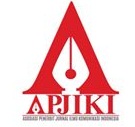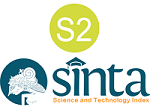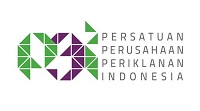Internal communication strategies of startup in shaping a productive organizational communication climate
Abstract
XYZ company has successfully ranked among the top fifteen start-ups with the best DEI (Diversity, Equity, Inclusion) reputation in Indonesia, as recognized by CakeResume. This achievement was made possible through the company’s strategic use of internal communication to cultivate a positive organizational communication climate. This study aims to provide a deeper understanding of effective internal communication strategies for shaping the organizational communication climate. The research is qualitative and descriptive, employing a case study method within a post-positivistic paradigm. Data was collected through interviews with individuals actively involved in managing internal communication at XYZ company. The findings reveal that a structured, culture-centered internal communication strategy is a key factor in XYZ company’s success in creating an inclusive communication climate that supports diversity and ensures equality in the workplace. XYZ company’s internal communication strategy reflects the organizational culture through leadership behavior, the Idea Box program, internal bonding activities, training sessions, self-development content, town hall events, and regular evaluations via internal surveys. XYZ company’s internal communication strategy plays a significant role in shaping an inclusive organizational communication climate. Inclusive leadership, employee potential development, and open communication serve as the main pillars in fostering a work environment that is both adaptive and responsive to dynamic changes.
Keywords
Full Text:
PDFReferences
Abbasi, E., & Zamani-Miandashti, N. (2013). The role of transformational leadership, organizational culture and organizational learning in improving the performance of Iranian agricultural faculties. Higher Education, 66, 505–519. https://doi.org/10.1007/s10734-013-9618-8
Abualrub, R. F., & Nasrallah, M. A. (2017). Leadership behaviours, organizational culture and intention to stay amongst Jordanian nurses. International Nursing Review, 64(4), 520–527. https://doi.org/10.1111/inr.12368
Aldhafeeri, N. A. (2024). Organizational culture: A concept analysis. Nursing Science Quarterly, 37(4), 365–372. https://doi.org/10.1177/08943184241269891
An, J.-Y., Yom, Y.-H., & Ruggiero, J. S. (2011). Organizational culture, quality of work life, and organizational effectiveness in Korean University Hospitals. Journal of Transcultural Nursing, 22(1), 22–30. https://doi.org/10.1177/1043659609360849
Banaszak-Holl, J., Castle, N. G., Lin, M. K., Shrivastwa, N., & Spreitzer, G. (2015). The role of organizational culture in retaining nursing workforce. The Gerontologist, 55(3), 462–471. https://doi.org/10.1093/geront/gnt129
CakeResume. (2024). Daftar perusahaan startup Indonesia dengan reputasi DEI terbaik Januari 2024. Cake. https://www.cake.me/resources/ranking-dei-perusahaan-januari-2024?locale=id
Cherian, J., Gaikar, V., Paul, R., & Pech, R. (2021). Corporate culture and its impact on employees’ attitude, performance, productivity, and behavior: An investigative analysis from selected organizations of the United Arab Emirates (UAE). Journal of Open Innovation: Technology, Market, and Complexity, 7(1), 45. https://doi.org/10.3390/joitmc7010045
Choirisa, S. F. (2023). Examining organizational commitment between multidimensional work stressors and employees behavior in Indonesia through the conservation of resources theory. Journal of Quality Assurance in Hospitality & Tourism, 1–27. https://doi.org/10.1080/1528008X.2023.2293140
Ewing, M., Men, L. R., & O’Neil, J. (2019). Using social media to engage employees: Insights from internal communication managers. International Journal of Strategic Communication, 13(2), 110–132. https://doi.org/10.1080/1553118X.2019.1575830
Gusmarani, K., & Rajiyem, R. (2022). Strategi komunikasi internal dalam perubahan organisasi di masa transisi tahun 2019-2020. Jurnal Manajemen Komunikasi, 6(2), 137–162. https://doi.org/10.24198/jmk.v6i2.35518
HR Asia. (2025). HR Asia best companies to work for in Asia 2025. Business Media International. https://hr.asia/awards/home/
Hutasoit, R. M. H., Kurniasari, F., & Situmorang, R. (2022). Observing digital leadership model through interpretative phenomenological analysis a la regulator during pandemic era. Indonesian Journal of Multidisciplinary Science, 2(2), 1947–1956. https://doi.org/10.55324/ijoms.v2i2.284
Ji, Y. (2024). Effective organizational communication—the cornerstone of enterprise development. Modern Management, 14(6), 1089–1094. https://doi.org/10.12677/mm.2024.146126
Kasih, P. C. (2023). Mampukah budaya organisasi pemerintah menyatukan gen X, gen Y dan gen Z? Jurnal Riset Komunikasi, 6(2), 50–68. https://doi.org/10.38194/jurkom.v6i2.738
Lazarova, T. (2020). Building company culture and enhancing productivity in startup environment. Journal of International Scientific Publications, 14(1), 59–66. https://ideas.repec.org/a/isp/journl/v14y2020i1p59-66.html
Mardia, I. M. A., & Peranginangin, I. F. D. (2024). The effectiveness of organizational communication in improving employee performance at PT. Tirta Sibayakindo. Jurnal Ilmu Komunikasi Dan Media Sosial, 4(2), 650–654. https://doi.org/10.47233/jkomdis.v4i2.1942
Morissan. (2020). Komunikasi organisasi. Prenada Media.
Neill, M. S., Men, L. R., & Yue, C. A. (2019). How communication climate and organizational identification impact change. Corporate Communications: An International Journal, 25(2), 281–298. https://doi.org/10.1108/CCIJ-06-2019-0063
Nugraha, A. R., & Hafiar, H. (2022). Communication strategy and motivation of Indonesia Iprahumas members in producing scientific papers. Jurnal Manajemen Komunikasi, 7(1), 73–93. https://doi.org/10.24198/jmk.v7i1.40059
Pace, R. W., & Faules, D. F. (2013). Komunikasi organisasi: Strategi meningkatkan kinerja perusahaan. Remaja Rosda Karya.
Priambodo, E. P., Darokah, M., & Sari, R. E. Y. D. (2019). Peran self efficacy dan iklim organisasi dalam membentuk employee engagement melalui komitmen organisasi. Psympathic: Jurnal Ilmiah Psikologi, 6(2), 213–228. https://doi.org/10.15575/psy.v6i2.4974
Purnama, B. E. (2022). Survei setiap hari, satu dari dua karyawan mengaku stres. Media Indonesia. https://mediaindonesia.com/humaniora/519969/survei-setiap-hari-satu-dari-dua-karyawan-mengaku-stres
Rudianto, B. R. A. (2019). Komunikasi organisasi, stres kerja dan kinerja karyawan: dukungan sosial sebagai variabel moderasi. Jurnal Akuntansi Bisnis, 17(1), 98–113. https://doi.org/10.24167/jab.v17i1.2291
Sari, W. P. (2020). Job satisfaction and job performance dalam konteks komunikasi organisasi. Jurnal Muara Ilmu Ekonomi Dan Bisnis, 4(1), 29. https://doi.org/10.24912/jmieb.v4i1.7537
Sukmaningrum, L. A., Laras, N. P. N. V. M., & Dellan, M. R. (2023). Employee relations and communication activities of PT. Djelas Tandatangan Bersama during Covid-19. Jurnal Manajemen Komunikasi, 8(1), 60–79. https://doi.org/10.24198/jmk.v8i1.44456
Trihastuti, A. E. (2019). Komunikasi internal organisasi. Deepublish.
Wardani, A., Rusmana, A., & Yanto, A. (2017). Peran Pendidikan Pengguna Terhadap Perilaku Pemanfaatan Layanan Perpustakaan Fakultas Ilmu Komunikasi Universitas Padjadjaran. In Libraria. core.ac.uk. https://core.ac.uk/download/pdf/297848354.pdf
Wardhani, D. K., Handayani, F., & Fahrezi, M. S. (2022). Komunikasi organisasi internal kepada pegawai milenial untuk membentuk komitmen. Jurnal Ilmu Komunikasi, 20(2), 203–220. https://doi.org/10.31315/jik.v20i2.4995
Wenehenubun, S. P., Vanesa, V. H., Shanty, D., Triyani, Silalahi, H. H., & Hartijasti, Y. (2022). Moderating role of organizational culture on the effect of paternalistic leadership on hotels’ employee work engagement in the eastern part of Indonesia. International Journal of Environmental Sustainability and Social Science, 3(3), 527–543. https://doi.org/10.38142/ijesss.v3i3.238
Wibowo, T. O., Syafuddin, K., & Elmada, M. A. G. (2023). Twitter as potential Medium for organization: Constructing green messages on Twitter. Jurnal Riset Komunikasi, 6(1), 44–57. https://doi.org/10.38194/jurkom.v6i1.771
Yin, R. (2018). Studi kasus: Desain & metode. SAGE Publication.
DOI: https://doi.org/10.24198/jmk.v9i2.58698
Refbacks
- There are currently no refbacks.
Copyright (c) 2025 The Author(s)

This work is licensed under a Creative Commons Attribution-NonCommercial-ShareAlike 4.0 International License.
Jurnal Manajemen Komunikasi Indexed by:
Jurnal Manajemen Komunikasi
Fakultas Ilmu Komunikasi, Universitas Padjadjaran
Postgraduate Building, 2nd Floor, Faculty of Communication Sciences, Padjadjaran University
Jl. Ir. Soekarno Km. 21, Jatinangor, West Java 45363, Indonesia
Phone: +6288229381552 (WhatsApp Only)
Phone: +62227796954
Fax: +62227794122
Email: jurnal.manajemen.komunikasi@unpad.ac.id

This work is licensed under a Creative Commons Attribution-NonCommercial-ShareAlike 4.0 International License.
Jurnal Manajemen Komunikasi Supervised by:












21.png)

